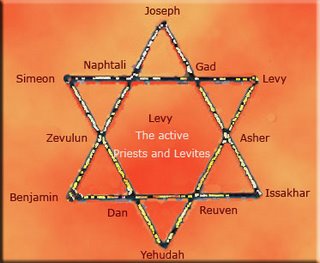
Picture is courtesy of Jeanne Fleming, aka chocolate Devi,
Jeanne, together with Jessica Bard is sculpting chocolates by order. One of the designs they offer their customers is a Star of David Chocolate and there’s a special section on their website that tells very gracefully the story of this symbol. Here’s my favorite excerpt:
Story has it that the Star was emblazoned on the Shield that David, the future King of Israel, used when, as a boy, he went up against the giant Goliath on the battlefield in the Valley Elah. But, everyone who knows that story also knows that David defeated the Giant with no protection–he just had his sling shot and his faith. Of course, that is where the shield really does come in. His shield was not a physical object bearing an insignia–his shield was his faith.
From another section, which explains the philosophy behind all this I understood that the Star of David belongs to a family of symbols of:
Love and luxury, joy and happiness, compassion, peace and serenity, healing, and fertility of the body and imagination

